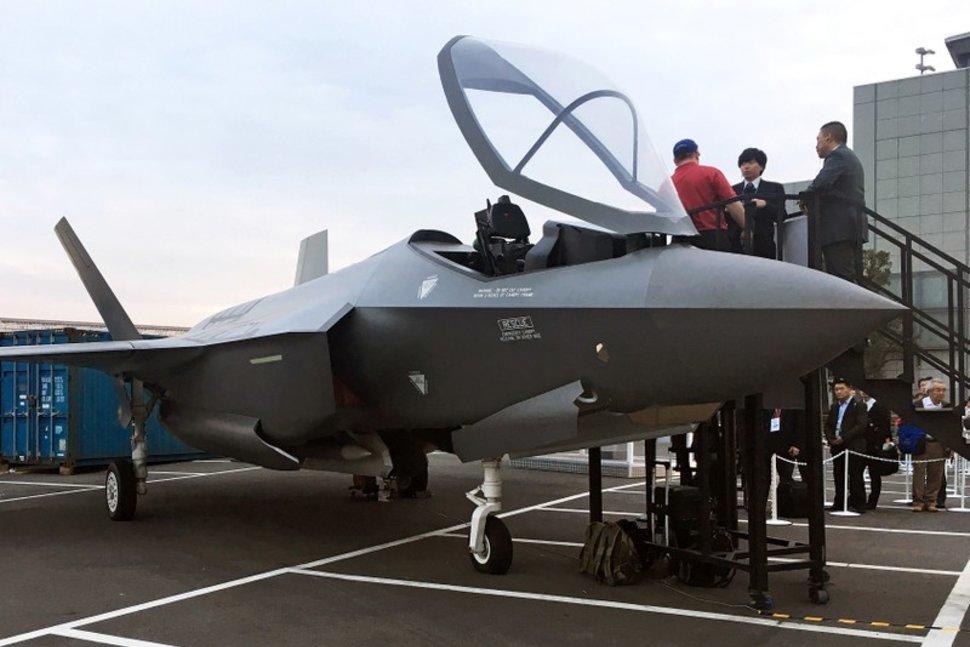Last Friday we reported that Turkey slammed the door on Washington’s demands that it cancel its S-400 contract with Moscow in the wake of continued US threats that it will deny transfer of F-35s to Turkey over the Erdogan government’s plans to move forward with taking delivery of the advanced Russian anti-air defense system in July.
This took place one day after four US senators introduced a bipartisan bill last Thursday to prohibit the transfer of the F-35 until the US can certify that Ankara will reject the S-400 deal. But Turkish officials reiterated their prior stance that it’s a “done deal” and that Turkey won’t back down.
“We have signed a deal with Russia, and this deal is valid. Now we are discussing the delivery process,” Foreign Minister Mevlut Cavusoglu said on Friday during a press conference while standing beside his Russian counterpart. He added that “We have an agreement with Russia and we are bound by it.” Confirming Turkey is set to take delivery from the Russians in July of this year, Cavusoglu added that every aspect of Turkish defense purchases were legitimate and in accord with international law.
The foreign minister also noted that Ankara has met its obligations to Lockheed Martin, producer of the F-35 stealth fighter. “Turkey is also a partner in the F-35 project. Some parts are being made in here in Turkey. Turkey has fulfilled its responsibilities in this regard,” the minister said.
* * *
Fast forward to today when, with Erdogan still smarting from one of his biggest electoral losses in decades in local elections which saw the ruling AKP lose control over the capital Ankara and, most likely, Istanbul as well, Reuters reports that the US has followed through with its threat, and halted delivery of equipment related to the stealthy F-35 fighter aircraft to the Nato ally, “marking the first concrete U.S. step to block delivery of the jet to the NATO ally in light of Ankara’s planned purchase of a Russian missile defense system.”
According to the Reuters sources, U.S. officials told their Turkish counterparts they will not receive further shipments of F-35 related equipment needed to prepare for the arrival of the stealthy jet. The sources also said the next shipment of training equipment, and all subsequent shipments of F-35 related material, have been canceled.

As Reuters notes, “the disagreement over the F-35 is the latest of a series of diplomatic disputes between the United States and Turkey including Turkish demands that the United States extradite Islamic cleric Fethullah Gulen, differences over Middle East policy and the war in Syria, and sanctions on Iran.”
In March, a Pentagon official said that the United States had a number of items it could withhold in order to send Turkey a signal that the United States was serious about Ankara dropping its ambition to own the S-400: the F-35 was one of them.
Predictably, the U.S. decision on the F-35s will likely complicate Turkish Foreign Minister Mevlut Cavusoglu’s planned visit to Washington this week for a NATO summit.
In parallel, Washington is also exploring whether it can remove Turkey from production of the F-35. Turkey makes parts of the fuselage, landing gear and cockpit displays. Sources familiar with the F-35’s intricate worldwide production process and U.S. thinking on the issue last week said Turkey’s role can be replaced.
The United States and other NATO allies that own F-35s fear the radar on the Russian S-400 missile system will learn how to spot and track the jet, making it less able to evade Russian weapons in the future.
In an attempt to persuade Erdogan to drop its plans to buy the S-400, the United States offered the pricier American-made Patriot anti-missile system in a discounted deal that expired at the end of March. And while Turkey had shown interest in the Patriot system, it would not do so at the expense of abandoning the S-400 and extending Russia’s strategic ties with Turkey.
Meanwhile, Turkish Defense Minister Hulusi Akar in March said that despite the escalating diplomatic scandal, Turkish pilots were continuing their training at an air base in Arizona on the F-35, each of which costs $90 million, and that Ankara was expecting the aircraft to arrive in Turkey in November.
Last summer, a diplomatic rout between the US and Turkey led to a series of temporary sanctions which resulted in a collapse in bilateral relations between the two nations and culminated with Turkey’s economy sliding into recession, soaring prices and a collapse in the lira. Whether that painful episode repeats itself will depend on just how vocal Erdogan’s reaction will be when he learns that the the US has halted the F-35 shipment. Considering that the Turkish “executive” president is now scrambling to boost his popularity in the aftermath of the local elections, it is more than likely that the posture adopted by Erdogan will be aggressive to very aggressive, especially if he feels he has Putin’s backing.
via ZeroHedge News https://ift.tt/2UaDSrP Tyler Durden